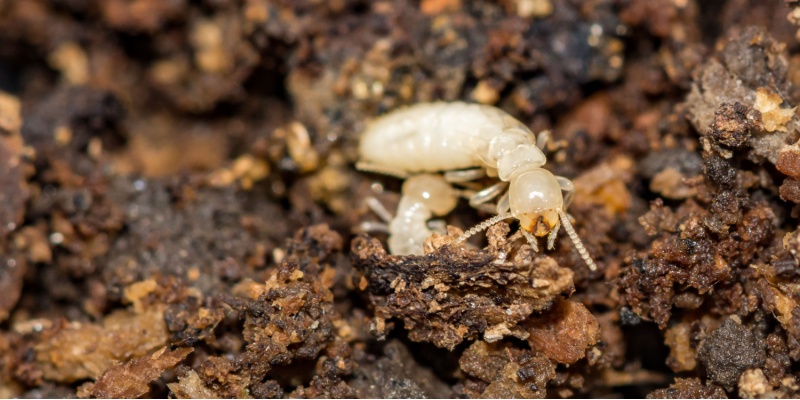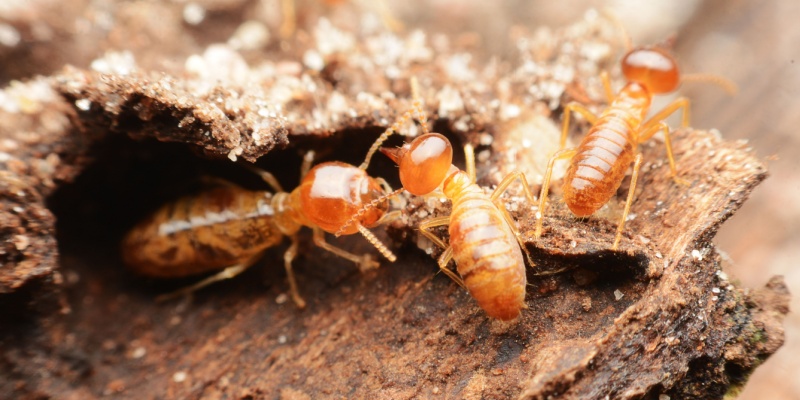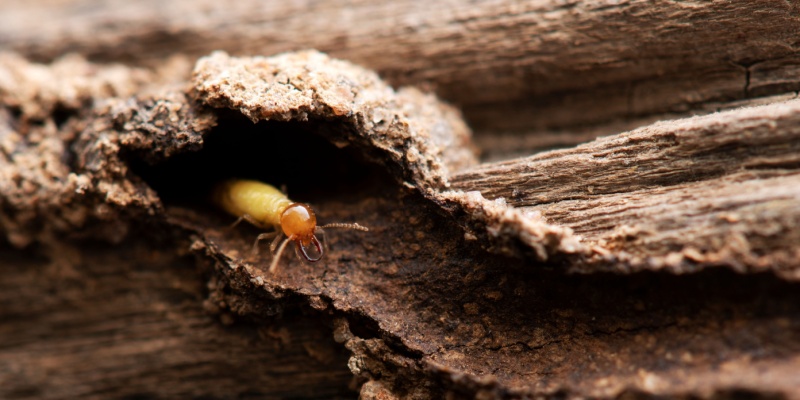Tennessee homeowners face significant termite pressure, with our state falling within what pest control experts call the “moderate to heavy” termite activity zone. Nashville and Middle Tennessee are particularly vulnerable, with our climate creating ideal conditions for several termite species. At All Pest Solutions, we’ve found that understanding the specific termite species threatening your home is crucial for effective treatment and prevention. Here’s a guide to the common termite species in Tennessee and the best strategies to combat each.
Eastern Subterranean Termites: Tennessee’s Primary Threat
Identification Features
- Worker Creamy white, about 1/4 inch long
- Soldiers Larger heads with powerful mandibles
- Swarmers Dark brown to black, about 3/8 inch long with wings
- Distinctive mud tubes along foundations
Eastern subterranean termites are by far the most common termite species in Nashville and throughout Tennessee. These termites live in large underground colonies that can contain millions of individuals, with multiple satellite colonies often developing around a single property.
Behavior and Damage Patterns
These termites build distinctive mud tubes to travel between their underground colonies and food sources. They primarily attack wood that’s in contact with or close to soil, making Nashville homes with crawl spaces or slab foundations particularly vulnerable. Eastern subterranean termites cause an estimated $2 billion in damage annually across the eastern United States.
Effective Control Methods
- Liquid termite barriers Creating a continuous chemical barrier around your foundation
- Termite bait systems Strategically placed stations containing bait that workers carry back to the colony
- Proper drainage and moisture control Reducing the damp conditions these termites prefer
- Regular inspections Essential for early detection before major damage occurs
Formosan Termites: An Increasing Concern
Though less common than Eastern subterranean termites, Formosan termites have been reported in parts of Tennessee and are spreading northward. These “super termites” are a particularly aggressive species that warrants special attention.
Identification Features
- Larger than Eastern subterranean termites
- Swarmers have translucent wings with small hairs
- Build carton nests (a mixture of soil, wood, and saliva) within walls
Behavior and Damage Patterns
Formosan termites can form colonies above ground if sufficient moisture is available, allowing them to infest homes without ground contact. They consume wood much faster than native termites, with colonies that can exceed several million termites. A single Formosan colony can cause severe structural damage within months rather than years.
Effective Control Methods
- Combined treatment approaches Often requiring both liquid barriers and bait systems
- Targeted wood treatments Direct application of termiticides to affected areas
- Aggressive moisture control Eliminating water sources that enable above-ground colonies
- Professional monitoring Regular inspections by termite specialists familiar with Formosan species
Drywood Termites: Less Common but Still Destructive
Unlike subterranean termites, drywood termites don’t require soil contact and can establish colonies directly in dry, sound wood. While less common in Nashville than in southern parts of Tennessee, they occasionally appear, especially in homes with wooden furniture or structural elements brought from southern states.
Identification Features
- Don’t build mud tubes (don’t need soil contact)
- Leave distinctive pellet-like frass (droppings)
- Swarmers are typically larger than subterranean termites
Behavior and Damage Patterns
Drywood termites create galleries within wooden structures, often remaining undetected until damage is extensive. They can infest furniture, hardwood floors, wooden trim, and structural timbers without any connection to soil.
Effective Control Methods
- Localized wood treatments For isolated infestations
- Fumigation For widespread infestations throughout a structure
- Heat treatments Non-chemical option that uses controlled heat to eliminate colonies
- Regular professional inspections Particularly important for homes with extensive wooden elements
Dampwood Termites: Uncommon but Worth Monitoring
Dampwood termites are less common in Tennessee but may appear in areas with excessive moisture problems. As their name suggests, they target wood with high moisture content, such as decaying logs, stumps, or water-damaged structural wood.
Effective Control Methods
- Moisture correction: Fixing leaks, improving drainage, and ensuring proper ventilation
- Removal of affected wood: Replacing damaged, moisture-compromised wooden elements
- Regular maintenance: Preventing conditions that create water-damaged wood
Why Professional Identification Matters
Each termite species requires different treatment approaches. At All Pest Solutions, our termite specialists are trained to identify specific termite species affecting Nashville homes and recommend targeted treatment strategies based on the exact type of infestation, the construction of your home, and other factors specific to your property.
Don’t wait until termites cause significant damage to your Nashville home. Contact All Pest Solutions today for a comprehensive termite inspection to identify any termite species present and develop a customized treatment plan to protect your biggest investment.



